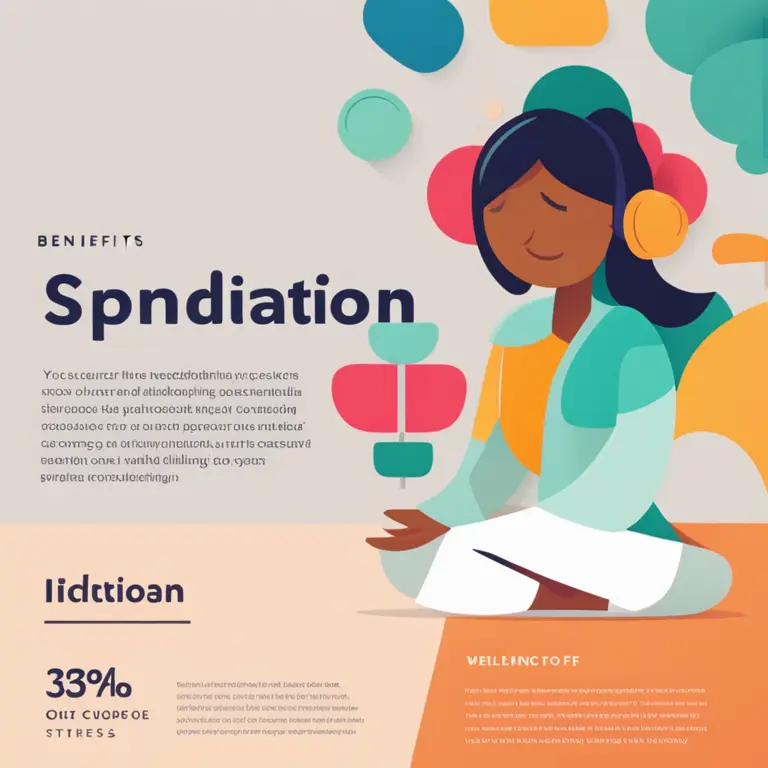
Meditation & Brain Function Connected
Discover how regular meditation practices can lead to profound changes in brain function and overall wellbeing.
article by Hina Kurosawa
Meditation Basics and Brain Health
Meditation is often considered a cornerstone of spiritual practices, but its benefits extend far beyond intrinsic spirituality. Rooted in ancient traditions, modern research now demonstrates that meditation can cause significant changes in brain structure and function. The practice, involving a range of techniques from focused attention to mindfulness, can lead to enhanced cognitive abilities, emotional regulation, and even neuroplastic changes. As the fast-paced world continues to demand mental resilience and agility, understanding the neurological impact of meditation is critical for harnessing its full potential for brain health.

Neural Pathway Enhancement
The human brain is an ever-changing network, with the ability to form new connections and pathways. Studies show that consistent meditation strengthens the connectivity of neural pathways, particularly in areas related to attention and sensory processing. The result? Meditators often experience improved focus and sharper senses. More intriguingly, these enhancements are not just temporary; with repeated practice, they can leave a lasting imprint on the brain's architecture, leading to sustained improvements in mental functions.

The Stress-Reduction Phenomenon
Meditation's role in stress reduction is one of its most celebrated effects. The practice downregulates the sympathetic nervous system, reducing the production of stress hormones like cortisol. This biological shift can alleviate the burden on our mental faculties, freeing up cognitive resources for more productive tasks and reducing the likelihood of stress-related mental health issues. Additionally, meditation has been linked to increased levels of gamma-aminobutyric acid (GABA), which plays a crucial role in anxiety reduction.

Cognitive Clarity and Emotional Balance
Regular meditators often report a heightened sense of clarity and emotional balance, and emerging research supports these subjective experiences. Meditation has been shown to stimulate the prefrontal cortex, the area of the brain associated with decision making and emotional regulation. Furthermore, it dampens the reactivity of the amygdala, the brain's "fear center," which is involved in responding to threats and processing emotions like fear and aggression. The result is a more measured and mindful emotional response and a clearer, more effective decision-making process.
Memory Improvement Through Mindfulness
Memory improvement is another fascinating benefit of regular meditation. Techniques that emphasize mindfulness have been linked to increased cortical thickness in brain regions related to learning and memory, such as the hippocampus. This not only aids in the retention of new information but also in the retrieval of memories, which can be particularly beneficial for aging populations looking to preserve cognitive function.
Brain Aging and Meditation
The aging brain is a natural concern, but meditation may offer a neuroprotective effect. Long-term practitioners seem to maintain more gray matter volume as they age compared to their non-meditating counterparts. With a more robust brain structure, meditators may experience a slower cognitive decline, suggesting that meditation could be a key component in strategies aimed at prolonging cognitive health during the golden years.
Published: 1/14/2024
Modified: 1/15/2024
More predictions
Come back here soon to learn more about yourself and your future


Calming the Storm: Mindfulness Meditation for Anger
Discover how mindfulness meditation can be a powerful tool for anger management, promoting inner peace and emotional balance.


Mindfulness Meditation: A Handbook for High Schoolers
Discover how mindfulness meditation can benefit high school students, enhancing focus, reducing stress, and promoting overall well-being.


Discovering Life with Meditation Mantras
Delve into the transformative power of meditation mantras to harmonize your mind, body, and spirit for a tranquil existence.